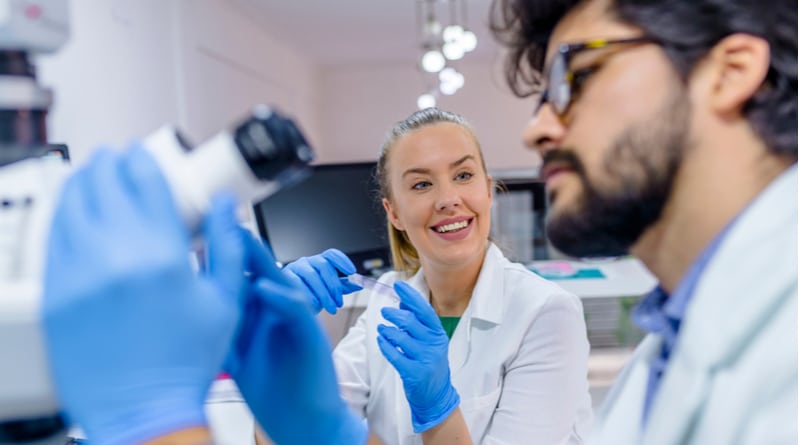What is Animal Science?
Animal Science is an alternative field of study for those who are interested in working with animals, in particular regarding breeding, physiology, and nutrition within the agricultural or research industries. Animal Science involves the understanding of the scientific principles of the production, processing, and marketing of animal products within agriculture such as meat, dairy, and wool.
Animal Science focuses on the management and the welfare of animals in agricultural, laboratory, para-veterinary, or wildlife settings and on the conservation of natural resources, including native and endangered species.
What Courses are available?
Universities and colleges in Ireland are offering courses in the following subject areas:
- Animal Science – the study of animal behaviour, wild animal management, animal grooming, and grooming science, animal training and management.
- Animal Biotechnology – the study of the uses and potentials of biotechnology in agriculture and animal production.
- Veterinary Care Assistant – the study of health care for animals under the supervision of a veterinarian or veterinary technician.
- Veterinary Fluid Therapy – the study of fluid therapy during the care process of animals.
Studying Animal Science in college
Animal Science is a comprehensive but vital field of expertise for anyone who enjoys working with animals of all types and aims to make a difference in the lives of animals through care.
Depending on the course you choose you could have lectures or classroom-based subjects as well as laboratory practicals and work placement. There may be a need for independent study and assessments.
Assessments typically take place throughout the course continuously and are combined with the end-of-trimester written exams. Certain fields may also require project work.
Career options
A course in Animal Science provides the Animal Scientist with the necessary knowledge and expertise to enter various sectors of primary, secondary, and related animal agriculture. There are vast opportunities for an animal scientist who is inquisitive, dedicated, enthusiastic, eager to learn new skills, and willing to adapt to an environment that may be constantly changing.
Animals require care around the clock so working hours may be irregular and require weekend and night shifts but could also have a more typical office job and office hours depending on the field and industry chosen for your career. When pursuing a career in Animal Science, experience working with animals is important. Try interning or working with an animal scientist, trainer, or even a veterinarian to gain experience.
A degree in this field provides good prospects for careers in the animal and agricultural industries, and animal and biomedical research.
Related jobs include:
- Animal Scientist
- Agricultural Manager
- Farmer
- Rancher
- Fishing & Forestry
- Agricultural Sciences Research
- Farm Management
- Veterinary Nurse
- Veterinary Assistant
- Zoologist
- Animal Welfare Inspector
- Animal Husbandry & Breeding
Further study
While many Animal Science careers do not require advanced degrees and, you may be interested in furthering your field of study by going on to further postgraduate study.
Animal Science degree levels vary across a wide range of possibilities, the type of animal science qualification you choose will determine how long it takes to get your diploma. Subjects in Animal Science include animal anatomy and physiology, breeding and animal husbandry, and nutrition for both monogastric and ruminant animals.
Additional courses may include the science of meat, dairy, ecology, pasture, and agricultural economics. It may be beneficial to include some training in marketing and project management to broaden the scope of available employment opportunities in the field. Training in business management will always be an asset when applying for a management position.
Courses are compiled to educate and train an animal scientist to enter the labour market with a well-developed, general knowledge of animal sciences. Specialization in specific disciplines such as Animal Breeding, Animal Health, Animal Nutrition, Dairy Science, Livestock management, and Poultry Science may be required depending on the chosen field and career choices.
FAQ
What are the entry requirements to study Animal Science?
Different courses and different colleges will have different entry requirements. It’s always best to check with the individual higher education institution for the specific course requirements. This information is available on their websites.
How do I know if a career working with animals is for me?
Anyone who has a passion and love for animals can have a career working with them but careers involving animals also require a lot of responsibility, hard work, and dedication. Volunteering at a local animal shelter will also allow you to work with domestic animals. Employers look for and prefer previous experience working with animals while hiring job prospects
Are there any particular qualities or skills you need to study Animal Science?
Patience and compassion are vital for working with animals as well as a genuine interest in the well-being of the animal. Animal Science requires strong problem-solving skills, observation, and close attention to detail to pick up on any issues that the animal may be having.
Strong interpersonal skills and communication are critical as Animal Scientists deal with a variety of humans and need to be able to properly and communicate about the status of an animal or process.
Where can I study Animal Science?
Explore your options here
Did You Know?
- Goats and sheep don’t have teeth on their upper jaw. They have a hard palate that helps them grind their food.
- Pigs don’t have sweat glands, so they must roll in mud to stay cool and prevent sunburns.
- Chickens have over 200 distinct noises they can make for communicating.
- There are over 30000 known species of fish.












Comments